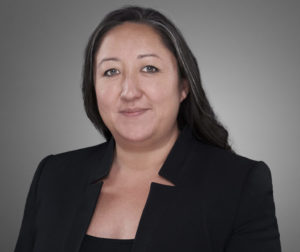Would Florida’s “Don’t Say Gay” Bill Create Hostile Work Environments for LGBTQ Teachers?
You may have heard recently that the Florida legislature is considering a bill dubbed “Don’t Say Gay,” which would prohibit teachers from “encourag[ing] classroom discussion about sexual orientation.” Much has been written about the way that such bills may harm students because it prevents children from learning about different kinds of people, relationships, and families, and may result in LGBTQ children feeling stigmatized or alienated as a result. But, what about the harm to teachers?
Imagine a private company in which LGBTQ employees are forced to hide any indication of their sexual orientation from coworkers – never referring to a partner by name or even pronoun, never bringing a partner to work events or even keeping a wedding photo in one’s office. Indeed, imagine if one’s workplace could get a court order barring any mention of one’s sexual orientation in the future (unless that sexual orientation happened to be heterosexual). That certainly sounds like a discriminatory work environment for LGBTQ employees, and one that likely violates federal law, as well as New York City and State law (and many other city and state laws around the country).
Yet, Florida’s Don’t Say Gay bill does essentially this for Florida teachers. It would permit parents to sue a school district where a teacher has “encourage[d] classroom discussion about sexual orientation” and obtain a court order barring the school (and thus the teacher) from ever doing so again. LGBTQ Floridians are rightly afraid that this would bar even passing mentions of someone’s family or relationship. This could easily mean that teachers are forbidden from merely mentioning a male teacher’s “husband;” or mentioning the name or pronoun of someone’s partner, parents or in-laws. Indeed, it is possible that a gay teacher could be terminated for posting a wedding photo on their own social media – much as a Black principal in Texas was asked by his school to remove a wedding photo from his private social media page because his wife is white. Moreover, teachers aren’t lawyers and so, if the law goes into effect, they are likely to err on the side of caution to preserve their jobs. This is particularly true if they fear that parents or school administrators are likely to be on the lookout for any possible hint of a mention of non-heterosexual identities, relationships, or families.
Indeed, this kind of workplace policy would be discriminatory despite the fact that the Don’t Say Gay bill uses the ostensibly neutral phrase “sexual orientation” – theoretically banning discussions of heterosexuality as well as homosexuality or bisexuality. But as anyone in the LGBTQ community can tell you, the reality is that the only way to avoid “encouraging discussions” of sexual orientation is to never disturb many people’s underlying assumption that everyone is heterosexual unless otherwise stated. It is virtually impossible to imagine that a straight female teacher making a passing reference to her “husband” would be accused of “encourag[ing] discussion about sexual orientation.” That’s because for large swaths of society, heterosexuality is assumed, and so no discussion is likely to ensue. But anything that disturbs that assumption runs the risk of being accused of “raising” the issue. Moreover, imagine the fear that LGBTQ employees would be forced to work under in a company with such rules – fear that any reference to their family might get them fired – and how such fear might affect one’s job performance or ambition. Heterosexual employees would face no such fears or obstacles to career advancement. Moreover, if other parents and teachers were either encouraged or required to be on the lookout for signs that someone else is stepping out of line, the LGBTQ employee’s fear would only increase. Indeed, all of this may start to quickly add up to a situation where the LGBTQ employee’s job becomes, essentially, unbearable; where the differential treatment they experience because of their sexual orientation becomes “severe or pervasive,” the federal standard for when a discriminatory work situation becomes a “hostile work environment.”
Of course, it is unclear whether the Florida Don’t Say Gay bill will pass – and if it does, it’s not entirely clear how it would be interpreted or enforced, or indeed how such a state law would intersect with federal workplace discrimination laws. But it’s a useful exercise in thinking through workplace policies that promote hostile work environments, even if those policies are ostensibly “neutral.”
Finally, when thinking about issues that arise from bills like Don’t Say Gay, it’s important to remember that schools aren’t only places where children learn. They’re also places where people work every day to feed their families and build their careers.
 This article is intended as a general discussion of these issues only and is not to be considered legal advice or relied upon. For more information, please contact RPJ Attorney Christine Clarke who counsels clients on employment, labor, healthcare, housing, and civil rights law, as well as legal compliance for non-profit organizations; First Amendment free speech and constitutional due process claims; and discrimination dispute resolution and prevention trainings. Ms. Clarke is admitted to practice law in New York, as well as the U.S. District Courts in the Southern and Eastern Districts of New York, the Second Circuit Court of Appeals, and the United States Supreme Court. Attorney Advertising.
This article is intended as a general discussion of these issues only and is not to be considered legal advice or relied upon. For more information, please contact RPJ Attorney Christine Clarke who counsels clients on employment, labor, healthcare, housing, and civil rights law, as well as legal compliance for non-profit organizations; First Amendment free speech and constitutional due process claims; and discrimination dispute resolution and prevention trainings. Ms. Clarke is admitted to practice law in New York, as well as the U.S. District Courts in the Southern and Eastern Districts of New York, the Second Circuit Court of Appeals, and the United States Supreme Court. Attorney Advertising.
